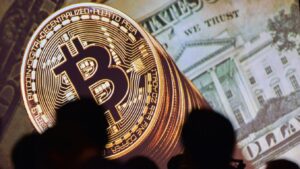On November 21, Binance and its CEO, Changpeng Zhao (CZ), pled guilty to engaging in criminal activity. With the U.S. government taking decisive action against major players, the repercussions may shape a new era for cryptocurrencies.
The Rise and Fall of Giants
Cryptocurrencies, powered by blockchain technology, promised a financial revolution—enabling instant, intermediary-free transactions. Yet, this potential was marred by the actions of notable early adopters, including Binance and its counterpart FTX, founded by Sam Bankman-Fried. Allegations of financial rule violations and, in Binance’s case, proven criminal activity, cast a shadow over the industry’s prospects.
The latest generation of cryptocurrency participants signals a shift. New firms are emerging, aiming not to circumvent regulations but to work within established financial frameworks. This shift may lead to evolutionary changes, making it more palatable for widespread adoption and acceptance by regulatory authorities, especially in the United States.
The Monitorship Dilemma
As part of the plea deal with the government, Binance faced a historic penalty—$4.3 billion, the largest in U.S. Treasury and Financial Crimes Enforcement Network history. CZ, stepping down as CEO, is set to endure fines and a potential ten-year prison sentence. While Binance continues operations, the conditions set forth pose substantial challenges.
The settlement mandates a complete exit from the United States and a five-year monitorship. The U.S. Treasury Department retains access to Binance’s books, records, and systems. Reports from the Monitor will be shared with FinCEN, Office of Foreign Assets Control, the Commodity Futures Trading Commission, and the Department of Justice. Notably, the Securities and Exchange Commission remains unconvinced, with lingering concerns.
Top customers, under intense scrutiny, face additional monitoring. Binance must review all transactions from 2018 to 2022, filing any omitted Suspicious Activity Reports. These stringent conditions cast doubt on Binance’s ability to operate unencumbered in the crypto space.
The Case for the End of Binance
Binance’s involvement in criminal conduct, as admitted in the settlement, has far-reaching implications. Attorney General Merrick B. Garland’s revelations, including internal chats endorsing dubious activities, paint a damning picture. The big question arises: What will become of Binance and its user base?
Criminal customers, tax evaders, and entities avoiding U.S. scrutiny may rethink their association with Binance. The settlement compels Binance customers to share more information with U.S. government agencies than with other exchanges. This raises concerns about the platform’s future clientele and its competitive edge.
The competitive advantage Binance once held, seemingly rooted in circumventing compliance obligations, now faces a reckoning. With a tarnished reputation and increased oversight, the challenge lies in defining a new differentiator in a space where trust is paramount.
What Did Binance Do?
Binance’s guilty plea extends beyond mere oversight lapses. The Department of Justice’s findings reveal a willful failure to report over 100,000 suspicious transactions involving severe criminal conducts, frauds, and scams. The SEC’s thirteen outstanding charges add to the litany of accusations, including operating unregistered exchanges and the unregistered offer and sale of securities.
This revelation forces a critical evaluation of the role Binance played in hindering the true potential of the digital asset class. The harm inflicted on competitors and the industry itself is immeasurable, casting a shadow on the legitimacy of the entire crypto space.
Navigating the Future
The digital asset class stands at a crossroads. While proponents tout its potential to revolutionize the financial system, actors like Binance may have impeded its progress. The industry must now provide a fair chance for cryptocurrencies to demonstrate their true value.
In a landscape reshaped by Binance’s fall from grace, the cryptocurrency industry faces a pivotal moment. The road ahead demands a commitment to ethical practices, regulatory compliance, and a renewed focus on the transformative potential of digital assets.





